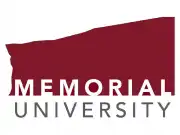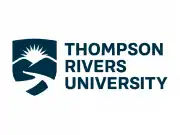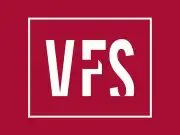Linguistics programs in Canada for international students
- Advantages of Studying Linguistics in Canada
- Types and Levels of Linguistics Programs in Canada
- Top Universities for Linguistics in Canada
- Other Recommended Institutions for Linguistics in Canada
- How to Apply for Linguistics Programs in Canada
- Tuition Costs for Linguistics Programs in Canada
- Scholarships and Grants for Linguistics Programs in Canada
- Language of Instruction and Preparation for Linguistics Studies in Canada
- Career Prospects After Linguistics Studies in Canada
- Is Studying Linguistics in Canada Worth It?
- Frequently Asked Questions

Bachelor of Arts - Russian
Memorial University of NewfoundlandRussian is one of the United Nations' five official languages and the native language of 142 million Russian Federation people.
The Russian major combines learning the Russian language with specialisation in many parts of Russian culture, literature, and contemporary topics pertinent to…

Bachelor of Arts - Spanish
Memorial University of NewfoundlandYou can communicate with approximately 500 million individuals worldwide if you speak Spanish. Spanish is one of the most important languages in our hemisphere's economy, politics, and culture. It is the second language of the United States and is gaining popularity in both established and rising…

Master of Arts - French Studies
Memorial University of NewfoundlandThe MA in French Studies focuses on the French language as well as francophone culture and literatures from around the world. Our programme emphasises literary history, criticism, and theory, which give an excellent foundation for completing French studies in a PhD programme at any prestigious university…

Master of Arts - Linguistics
Memorial University of NewfoundlandThe Department of Linguistics emphasises data-driven, theoretically informed work into aboriginal languages, linguistic diversity and change, and language learning. Our graduate programmes start with a strong theoretical foundation (phonology, syntax, morphology, etc.) and expand from there. From…

PhD - English
Memorial University of NewfoundlandThe English Department is a vibrant and productive community of 23 full-time faculty members engaged in active research programmes, graduate supervision, and literary scholarship and creative writing publication.
The ten research clusters listed below indicate specific concentrations of…

PhD - Linguistics
Memorial University of NewfoundlandThe Department of Linguistics emphasises data-driven, theoretically informed work into aboriginal languages, linguistic diversity and change, and language learning. Our graduate programmes start with a strong theoretical foundation (phonology, syntax, morphology, etc.) and expand from there. From…

Bachelor of Arts - English
Thompson River UniversityConcentrate on the study and analysis of books, both modern and classical. Improve your skills in writing, composing, and public speaking. Deepen your grasp of the English language with your passion for the written word and curiosity about humanity's vast literary expression. English is one of the…

Preparatory Program - English for Creative Arts
Vancouver Film SchoolImprove your English for the creative professions by studying about film, photography, animation, and game design. Develop critical language and communication skills to boost your English for the creative industries and help you advance your career in media arts. You will work on English coursework…
Advantages of Studying Linguistics in Canada
Canada is one of the most popular countries for higher education among international students. Linguistics programs here are distinguished by high academic standards, international recognition of degrees, and comfortable conditions for students.
Key advantages:
- Canadian universities consistently rank among the world's top educational institutions.
- A wide selection of English and French programs allows students to choose their preferred language environment.
- Opportunity to receive quality academic training and practical experience at an international level.
- Access to immigration programs for graduates, including the possibility to stay in the country on a work visa.
- Safe, tolerant, and multicultural learning environment.
- High teaching standards and participation in cutting-edge research.
- Numerous scholarship and financial aid options.
- Modern campuses, developed infrastructure, and dedicated support for international students.
Types and Levels of Linguistics Programs in Canada
International students can choose from the following linguistics program levels and formats:
- Bachelor's Degree — 3-4 year academic programs focused on foundational training in linguistics, phonetics, psycholinguistics, sociolinguistics, and related disciplines.
- Master's Degree (MA, MSc) — 1-2 year programs with either research or applied focus, covering advanced study of language theory, applied linguistics, and computational linguistics.
- PhD Programs — Research programs lasting 3-5 years, designed to prepare scholars for linguistic research careers.
- Certificate and Diploma Programs — Short-term courses (6 months to 1 year) for professional training or skill development, including foreign language teaching and applied linguistics.
- Summer Schools and Preparatory Courses — Intensive programs covering applied linguistics, language teaching methodologies, speech technologies, and related fields.
Top Universities for Linguistics in Canada
| University | Program | Tuition for International Students (CAD/year) | World Ranking* | Notes |
|---|---|---|---|---|
| University of Toronto | BA in Linguistics | from 62,000 | 21 | One of Canada's leading universities with international recognition, strong research in theoretical and applied linguistics, access to modern laboratories. |
| University of British Columbia | BA in Linguistics | from 58,000 | 34 | Wide selection of courses in phonetics, psycholinguistics, language diversity, and language-technology interaction. |
| McGill University | BA in Linguistics | from 53,000 | 30 | Leader in French language research, bilingualism, and language policy, unique Francophone environment. |
| University of Alberta | BA in Linguistics | from 42,000 | 111 | Program with focus on Indigenous language heritage, supporting language preservation research. |
| Simon Fraser University | BA in Linguistics | from 36,000 | 318 | Strong in cognitive linguistics, endangered language studies, and modern speech technology research. |
*According to QS World University Rankings.
Other Recommended Institutions for Linguistics in Canada
| Institution | Program | Tuition (CAD/year) | National Ranking* | Notes |
|---|---|---|---|---|
| Centennial College | Applied Linguistics Diploma | from 19,500 | 46 | Practical training in ESL teaching methodologies, ideal for future English language teachers. |
| George Brown College | TESL and Applied Linguistics | from 21,000 | 38 | Combines theoretical foundation with practical English language teaching experience. |
| Seneca College | Language Studies Certificate | from 18,000 | 29 | Short-term preparation courses with focus on academic English and communication skills. |
*According to QS World University Rankings.
How to Apply for Linguistics Programs in Canada
Application process:
- Select suitable university and program
- Prepare required documents:
- High school diploma or bachelor's degree (with certified translation)
- Academic transcripts
- English or French language proficiency certificates
- Statement of purpose explaining your program choice
- Letters of recommendation from professors or employers
- Portfolio, publications or research projects (for Master's and PhD applicants)
- Complete language tests:
- IELTS Academic (typically 6.5+, some programs require 7.0+)
- TOEFL iBT (86+, preferably 100+ for prestigious universities)
- Duolingo English Test (accepted by some universities, 115+)
- Additional exams — may be required for graduate programs (e.g., GRE for research programs)
- Interview (more common for Master's and PhD applicants)
- Wait for official university decision
- Receive Letter of Acceptance
- Apply for student visa
Note that competition for linguistics programs at top universities is quite intense.
Tuition Costs for Linguistics Programs in Canada
Price ranges:
- Bachelor's programs: CAD 36,000-62,000 per year
- Master's programs: CAD 18,000-50,000 per year
- Certificate and diploma courses: CAD 15,000-25,000 per year
Additional expenses:
- Accommodation: CAD 900-1,500 per month (dormitory or apartment)
- Food: approximately CAD 400-800 per month
- Transportation: from CAD 100 per month (student transit passes)
- Health insurance: CAD 600-1,000 per year (mandatory for all students)
- Study materials and fees: about CAD 1,000-2,000 per year
Total estimated annual costs for tuition and living expenses — approximately CAD 50,000-80,000 for undergraduate studies.
Scholarships and Grants for Linguistics Programs in Canada
Available financial support options:
- Academic scholarships: University of Toronto International Scholar Award, McGill Entrance Scholarships, University of British Columbia Merit Scholarships
- Financial aid: Bursaries for students experiencing financial hardship
- Achievement-based awards: UBC Outstanding International Student Award, Scholarships for Leadership and Community Engagement
- University grants: Research Assistantships and Teaching Assistantships for graduate students
- Research positions: Opportunities to work on departmental research projects while studying
Most scholarships are awarded competitively based on academic performance, motivation and recommendations. Application deadlines are typically 6-12 months before program start dates.
Language of Instruction and Preparation for Linguistics Studies in Canada
Primary language of instruction is English. French-language programs are available in Quebec.
Language proficiency requirements:
- IELTS Academic: 6.5+, preferably 7.0 for top universities
- TOEFL iBT: 86+, 100+ for prestigious programs
- Duolingo English Test: minimum 115
University preparatory courses are recommended, especially if your language skills don't meet minimum requirements.
Career Prospects After Linguistics Studies in Canada
Graduates find opportunities in various fields:
- Foreign language teaching (in Canada and abroad)
- Translation and interpretation
- Computational linguistics, language technology and AI development
- Academic research and linguistic consulting
- Positions with international companies and educational institutions
Sample employers:
- Canadian universities and schools
- Language centers (e.g., English Language Schools)
- IT companies developing voice assistants and language models
- Translation agencies and international organizations
- Research centers focused on Indigenous language preservation
Is Studying Linguistics in Canada Worth It?
Canada offers world-class linguistics education with modern laboratories and access to international research projects. Compared to the U.S., tuition is more affordable while visa and immigration policies are more favorable. Relative to Europe, Canada provides better support services for international students and more English-language program options.
Frequently Asked Questions
1. Which Canadian universities are strongest in linguistics?
University of Toronto, University of British Columbia, McGill University, University of Alberta and others.
2. How can international students apply for linguistics programs in Canada?
Select a university, prepare documents, demonstrate language proficiency, complete interviews (if required).
3. What does linguistics education cost in Canada?
CAD 36,000-62,000 annually for bachelor's programs, from CAD 18,000 for master's degrees.
4. Are scholarships available for linguistics studies in Canada?
Yes, including academic scholarships, merit awards, grants and research assistantships.
5. What career opportunities exist after linguistics studies?
Graduates work as teachers, translators, AI language specialists, and researchers.
6. Which language tests are accepted for linguistics programs?
IELTS, TOEFL and Duolingo with minimum scores starting at 6.5.
7. Can I study linguistics in French in Canada?
Yes, particularly at Quebec universities like McGill.
8. Is obtaining a study visa difficult?
With acceptance letter, financial documents and passing language scores, the process is straightforward.
9. What documents are needed for applications?
Diplomas, language certificates, recommendation letters, statement of purpose, sometimes portfolios.
10. Are there preparatory linguistics courses in Canada?
Yes, colleges and universities offer preparatory courses including academic English training.